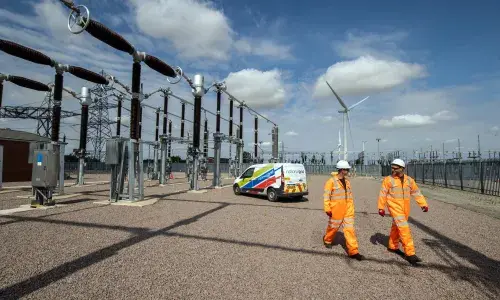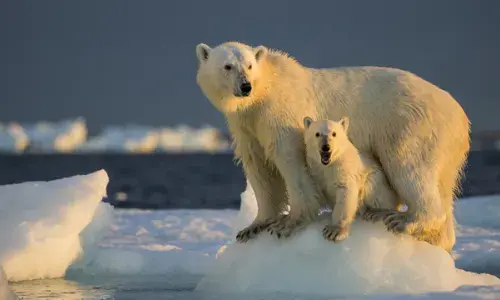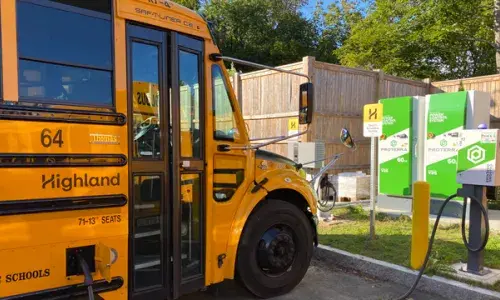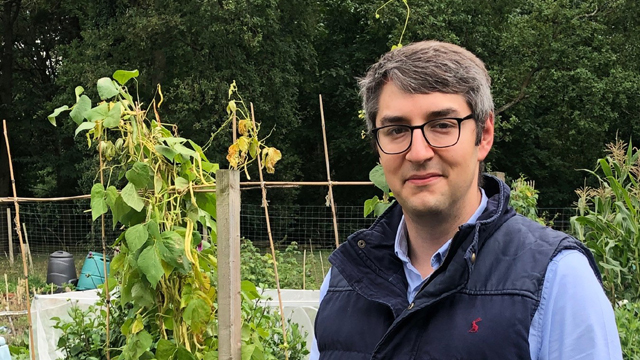
Green collar jobs: Matthew Goldberg – from unusual A Level to the UN
We talk to Matthew Goldberg about his role as an Environmental Assurance Manager, donning his ‘green cape’ at both work and home, and how an unexpected A Level led to a career high of speaking at the United Nations.
In the simplest terms, I’m part of a wider team that keeps the gas flowing to heat homes and water, and provide energy for cooking. Specifically, I’m responsible for the team that ensures our Gas Transmission business understands its environmental obligations – how we meet them and provide feedback on performance.
Greening up gas
Our work includes monitoring the air quality emissions associated with our gas turbines, to make sure they meet permitted limits when running to move gas around the network. Recently we’ve also been heavily involved in looking at methane emissions – a significant greenhouse gas – helping to make a good start on our journey to net zero by 2050.
An unusual A Level led to a career passion
When I was joining sixth form college I didn’t know what to do and the admissions advisor suggested that, as I enjoy geography, I should do Environmental Science as an A Level. I loved it! I went on to study Environmental Science at university too, where I found it really aligned with my values and beliefs about making sure we provide a sustainable planet for generations to come.
I’m fortunate enough now to work in a field using that training, but which is also about my personal passion – it helps me to be truly invested in what I’m doing.
I need to pinch myself occasionally, as I never thought I’d have the opportunity to influence on a global stage, but I love the challenge.
Working with the UN
My proudest moment was being invited to speak at the UN in Geneva last year, about the work I’d been supporting in our European forums on methane emissions. I continue to work alongside the UN Environment Programme to develop an international framework for methane emissions monitoring, reporting and validation. I need to pinch myself occasionally, as I never thought I’d have the opportunity to influence on a global stage, but I love the challenge.
Balancing realism and environmentalism
It’s very simple to be a purist when it comes to environmental matters. However, my time in business has taught me that, while the solutions are simple, we need to deliver them within the existing systems that we have, economically, safely and technologically.
For me, the biggest challenge has always been to demonstrate the intricate links that environmental outcomes have with other areas and ensure that business plans are encompassing all outcomes, not just environmental or economical. The true mark of sustainable business is when you consider all three pillars together: society, environment and economics. When you get it right, the challenges fall away and it’s a great feeling.
Diverse career options
For anyone thinking of a green collar career, I’d simply say ‘do it!’ Whereas previously you needed an earth sciences-type qualification, nowadays it’s much more diverse; although the roles and people all seek to deliver the same outcome of a sustainable future.
Designers, engineers, finance or HR professionals, subject matter experts, managers, operators … the list is endless – all have a role to play, because the pillars of sustainability run through every element of our lives. It’s inescapable, which is why everyone has something to bring, give, learn and deliver.
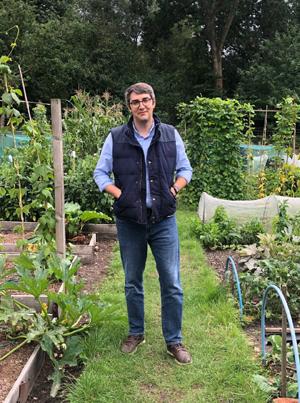
Donning a ‘green cape’
Being part of a team that has such a diverse group of people, all driven to achieve the same outcome of delivering the energy systems of the future, makes it easy to put that green cape on and come to work every day.
My eco hero is…
I was lucky enough to meet David Attenborough at my graduation and talk about my dissertation on sustainability. I was humbled by his knowledge and how down-to-earth and easy it was to talk to him.
But lots of people say he’s their eco hero, so I’ll go with a close second in George Monbiot. He’s a fantastic writer for The Guardian and covers a range of sustainability issues, always providing a balanced view and insight. Whenever I read his pieces I always find it thought provoking and a call to action, without being ‘doom and gloom’.
Living a greener family life
For a while, my family and I have been following the more traditional environmental routes to sustainability – walking as much as possible, recycling, reducing plastic, sustainable sourcing and energy saving lights and equipment. However, one thing we’ve recently got into is an allotment. We’re teaching our daughter about life cycles, food production, biodiversity and to cherish the natural world this way. Thankfully, she’s loving it and we should have some lovely cabbages to harvest in the spring!

